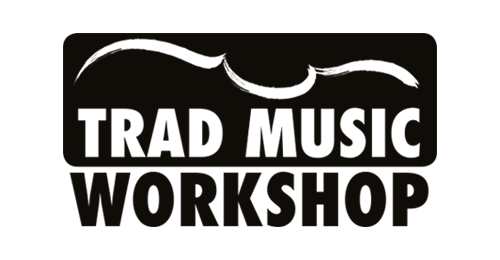Uilleann Pipes – Lars Pfeiffer
This class with Lars is for intermediate and advanced players of the Uilleann Pipes. We will look at new repertoire, variations, ornaments, regulator work and everything else pipes-related. For those that are interested we can have a chat about reeds, tuning, maintainance etc. If you are a beginner please contact the organisers for info. Contact
Song – Josie Duncan
Over the weekend we will explore the rich traditions of Gaelic song through the joy of singing together. The weekend will provide an opportunity to immerse yourself into the history, stories, melodies, pronunciation and rhythm of these songs, arming you with new repertoire as well as a further insight to the culture that they come from.
Irish Flute – Steph Geremia
This class will address the fundamentals of traditional Irish flute playing with a focus on North Connaught repertoire and style. During the week, Steph will explore many aspects of the Irish flute, from basic melodic variation, ornamentation, rhythm to technical exercises, with lessons tailored specifically for the students in the classes. Tunes will be taught by ear with notation provided upon request.
Fiddle – Chris Stout
Chris will focus on the fiddle music of the Shetland. Taking the students on a journey from our most treasured traditional tunes right through to our vibrant contemporary compositions by some of the leading players and composers.
This class is aimed at fiddle players from intermediate to advanced level who can easily learn by ear and have a good command of their instrument.
Ensemble Albin Paulus
***MAGIC*** multiinstrumental | aktuell & anachronistisch | globetrotterisch | intergalaktisch | cool
X-mal durchgekauten und abgestandenen Mainstream satt? Und Ihr spielt zuhause einsam im Kämmerlein? Dann nix wie in den Ensemblekurs! Wir werden gemeinsam Stücke vorwiegend nach Gehör lernen und genießen, in Mehrstimmigkeit schwelgen, witzige Arrangements überlegen, neue Klänge ausprobieren (Bau von einfachen Instrumenten durchaus möglich!) und auf traditionellen, aber wirkungsvollen Harmoniefolgen, wie sie das Leben schrieb, improvisieren (jeder kann das!), um letztendlich Neues auszuprobieren und uns gegenseitig in höhere Musikgefilde zu katapultieren. Als Repertoire sollen uns einerseits Tanztücke aus dem 18. und frühen 19. Jahrhundert dienen, einer Zeit, in der traditionelle Musik großteils noch frei von idealisierenden Strömungen und nationalistischer Vereinnahmung war, europaweit überregional, weltoffen und überraschend vielfältig, andererseits auch neuestes Repertoire. Kategorien dürfen gesprengt werden: stilistisch ist Alles erlaubt! Alle Instrumente inklusive Stimme sind möglich, Borduninstrumente in G/C und D/G-Stimmung erwünscht.
Basics of Irish Music – Antonia D. Wernig
This class is open to all melody instruments that are generally suited to Irish music in the key of D and G such as fiddle, flute, whistle, pipes, harp (melody), concertina, accordeon, banjo, guitar (melody), bouzouki (melody), etc.
We will look at the basics of Irish traditional music, meaning that you can benefit from this class if you are new to Irish music, and just as much if you are already playing ITM but you want to make it sound more „Irish“.
Some things we will look at/talk about are:
– the most common tune types, timing, rhythm, phrasing, variations
– ornaments: cuts, taps, rolls, crans, triplets, slurs, slides, vibrato etc.
– learning and playing by ear? (critical use of notation in ITM)
– session etiquette (how do I contribute to an Irish Music Session)
– listening to and discussing a selection of old and contamporary recordings.
Please note: you don’t need to know Irish Music or be able to read music in order to benefit from this class, however you need to have at least basic command of your instrument. If you are unsure about your level, or your instrument isn’t listed here, please contact us and we can have a chat about it. Contact
Bodhrán – Felix Morgenstern
While Felix’ class will cover different bodhrán-playing techniques suitable for practitioners of all
levels, including double- and single-ended sticking patterns and ornamentation, the primary
emphasis of this workshop will be on introducing participants to different approaches of rhythmic
accompaniment in Irish traditional music, listening carefully to the individual phrasing and
contour of tunes. In particular, we will explore using the skin-hand effectively to create tonal
variation in dialogue with a harmonic accompanist, as well as subtle bass-lines that will be
supportive to a melody instrumentalist in both session- and concert-settings.
